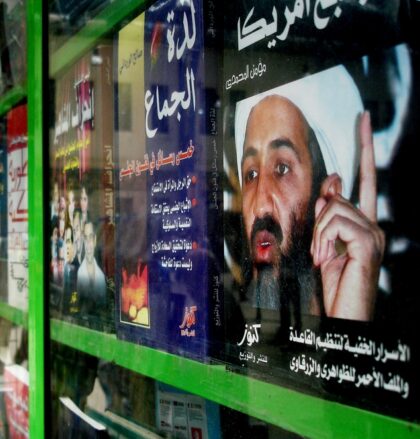Peter Bergen wrote a cover story for The Atlantic about the continued hunt for Osama bin Laden.
Finding bin Laden remains of utmost importance for three reasons. First, there is the matter of justice for the 3,000 people who died in the 9/11 attacks, and for the hundreds of other victims of al-Qaeda attacks around the world. Second, every day that bin Laden remains at liberty is a propaganda victory for al-Qaeda. Third, although bin Laden and his deputy Ayman al-Zawahiri don’t exert day-to-day control over al-Qaeda, according to Roger Cressey, a former senior U.S. counterterrorism official, they do continue to supply “broad strategic guidance” for the group’s actions, and for those of its affiliates. Statements from bin Laden and, to some degree, al-Zawahiri have always been the most reliable guide to the future actions of jihadist movements around the world—and this has remained the case even while both men have been on the run. Shortly after bin Laden called for assaults against Western economic interests in October of 2002, an Indonesian disco was bombed, killing 200 Western tourists, and a suicide attack was launched at a French oil tanker steaming off the coast of Yemen. In December of 2003, after al-Zawahiri condemned Pakistan’s President Pervez Musharraf for supporting the campaign against al-Qaeda, Musharraf narrowly survived two assassination attempts. Around the same time, bin Laden called for attacks against members of the coalition in Iraq; subsequently terrorists bombed a British consulate and a bank in Turkey, and commuters on their way to work in Madrid. According to U.S. intelligence officials, a plot to carry out a large-scale terror attack against the United States in the near future, possibly tied to the presidential election in November, is being directed personally by bin Laden and al-Zawahiri.








